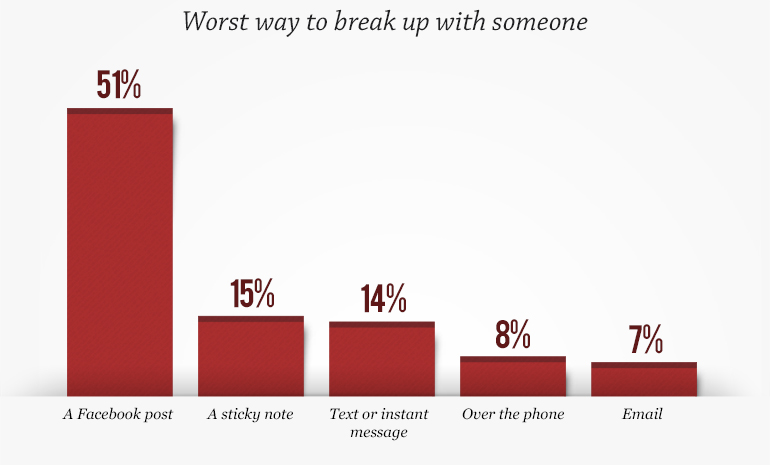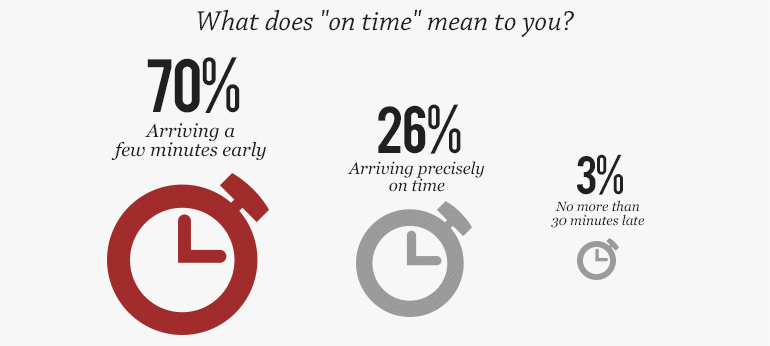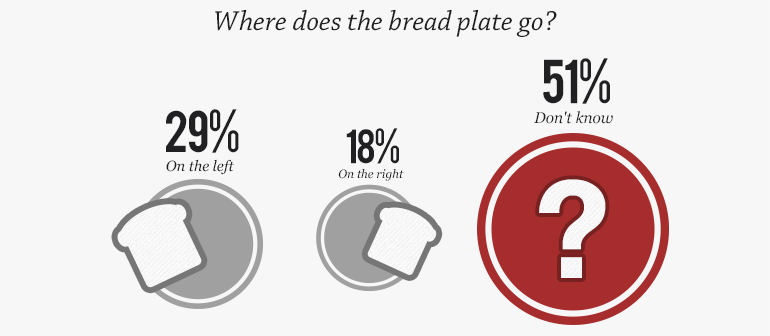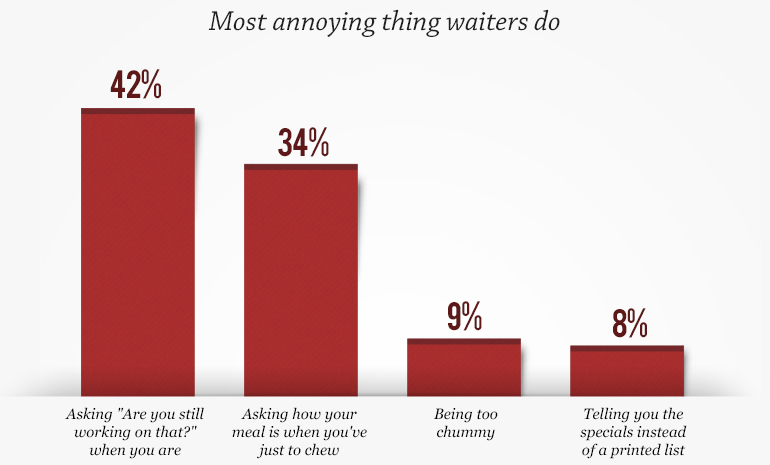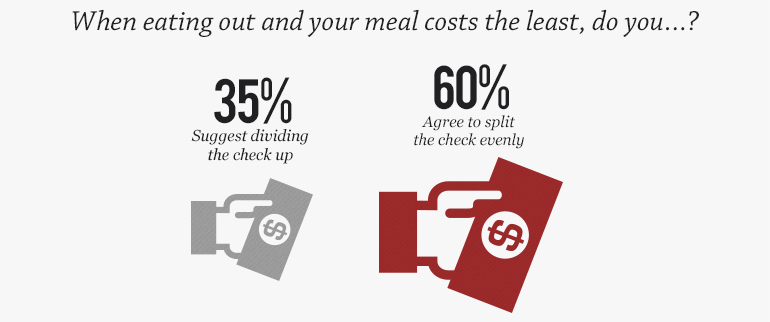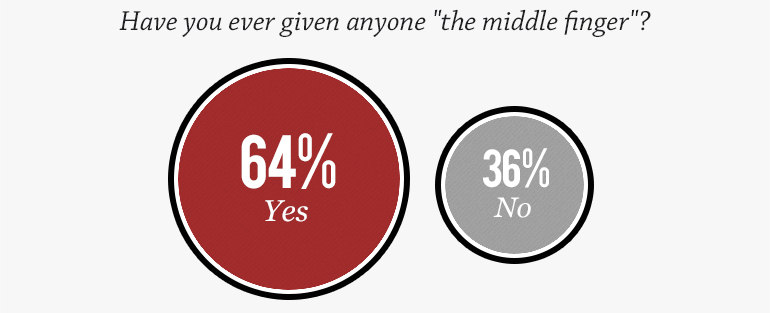60 Minutes/Vanity Fair poll: Etiquette
Welcome to the 60 Minutes/Vanity Fair poll for July 2014. This month's poll is about etiquette in the 21st century. It could be argued that the more advanced our society has become technologically, the less evolved it is becoming with respect to social courtesies, politeness and social norms. Some call it the "coarsening of America" and there is little doubt that the basic manners that were taken for granted by many generations years ago are now often forgotten or ignored.
Today's television, film and social media provide a steady stream of material that might make your grandmother blush. While it is natural to change over time, the precepts, laws and codes that held our society to a higher level of personal behavior have been gutted in the name of "progress." The personal freedoms that we have derived by changing ideas and attitudes such as "do your own thing" and "don't judge me" may come with a price. When you have a question about proper etiquette, who do you consult most often? We look forward to your answer to this question and many others that will hopefully stimulate some lively dinner table debates (no cell phones please). And now the results...
Questionable Behavior

A majority of Americans (56 percent) are fed up with people that text or check email during meals. Americans also don't get off on being blocked on an elevator (23 percent) or an escalator (seven percent) and nine percent say that people who use coats to save movie seats really wear on them. Nobody likes to be blocked from getting a seat at the movies or getting on or off elevators and escalators, but to all of you compulsive mobile device users who can't control themselves even when dining, the verdict is in, permission to use your phone during meals is off the table.
Custom to Keep

Forty-one percent would keep alive the formality of men opening doors for women. Next in order were handwritten notes (23 percent), taking off your hat indoors (13 percent), wearing black at funerals (nine percent) and keeping elbows off the table (eight percent). Who said chivalry is dead? Ironically, more men (52 percent) want to keep opening doors and more women (33 percent) wish to preserve the handwritten note.
You've got Mail

Six out of 10 Americans think that sending a letter of condolence should be done only by regular mail and 35 percent said that sending one by email was an acceptable alternative. Just over half of those between the ages of 18 and 44 think regular mail is a must but the older Americans get, the older school their opinions become. Seventy-seven percent of those over the age of 65, a group that has some experience in these matters, say that when it comes to sending your condolences to someone, put a stamp on it.
Managing Your Manners

Nearly four in 10 Americans say they use their own gut instincts when they have a question about proper etiquette. Nineteen percent ask their mother or grandmother, 17 percent consult their spouse, 11 percent go online, 10 percent phone a friend and only three percent ask "what would Emily Post say?" Emily grew up during the gilded age in America and became known as an expert on manners and etiquette. Her books were the reference many mothers consulted for a good deal of the last century.
Computer Conduct

From the list of choices taken from a sample online dating profile, half (51 percent) of the respondents said the rudest question was, "How much money do you make?" Next with 26 percent was "Do you have any STDs?" (Can that really be less rude?) Next up with nine percent was the slightly indelicate "Do you have any other pictures?" And finally with eight percent was the often asked (or forgotten to be asked) "Are you married?" Grandmother said to never discuss politics, religion or money in polite company and when it comes to money, a majority of Americans agree with her. It is somewhat bewildering that only 26 percent thought that asking someone if they had any STDs was the rudest question. Grandmother might have fainted upon hearing that one--it's probably another good example of the aforementioned "coarsening of American morals."
Breaking Up is Hard to Do
Sixties and seventies singer/songwriter, Neil Sedaka sang it best--"they say that breaking up is hard to do"--and half (51 percent) of the people that were asked think that the worst way to do it is by way of a Facebook post. Fifteen percent said a sticky note was the worst way out of a sticky break up, followed by a text or "instant break up" (aka an instant message) with 14 percent, the old cowardly way over the phone with eight percent and the new, even more cowardly way -- by email -- was chosen by seven percent as the worst way to break up with someone.
Practicing Punctuality
Seven out of 10 Americans think that the phrase "getting there on time" actually means getting there a little early if only by a few minutes. Twenty-six percent think it means just what it says and three percent think that it means arriving "fashionably late" that is to say up to 30 minutes tardy. Most people know that it is very important to be on time for weddings, graduations and funerals as a sign of respect to those being honored. Now take those same values and ascribe them to every meeting that you commit to being on time for. Showing that you value and respect a person's time is a sure way to be valued and respected as well.
Tableware
Twenty-nine percent correctly answered that the bread plate should be on your left (thank you again, Emily Post). Eighteen percent guessed right and they were wrong (or is that they guessed wrong by saying right?). Fifty-one percent admitted they did not know but there is a larger question at play here: With Americans watching their waistlines more than ever before, should every meal even have a bread plate? Maybe not every, but...
Dinner Service
Good waiters make themselves as inconspicuous as possible while providing attentive service. Forty-two percent of Americans think that their servers cross the line when they interrupt them to ask, "Are you still working on that?" The next, most annoying experience with 34 percent is to be asked how your meal is just after you've loaded your first bite. Nine percent said they don't need a new best friend in the form of a chummy waiter and eight percent would rather learn about the specials in written form and not as an oral dissertation.
Going Dutch?
When the check comes after dining out with friends, 60 percent of Americans say they usually just agree to split the check evenly while 35 percent said they usually suggest that it be divided based on what each person ordered. The majority have probably experienced a time or two when trying to divide up a check wasn't worth the trouble. It's usually easier on all concerned to bite the bullet and split it evenly. Or better yet, don't get mad, get even. The next time you're out with those friends order both the lobster and the cracked crab.
The Bird
Everybody's heard about the bird...or so the song goes and nearly two out of three Americans (64 percent) admit to having flipped it at some time in their life. Thirty-six percent said they have never given anyone the middle finger, which is rather amazing knowing that many of us do things in our youthful exuberance that we may later regret. It's kind of like driving a car, it's safer never to use hand signals unless you absolutely have to.
This poll was conducted by telephone from May 7-11, 2014 among 1,000 adults nationwide. Data collection was conducted on behalf of CBS News by Social Science Research Solutions of Media, PA. Phone numbers were dialed from samples of both standard land-line and cell phones. The error due to sampling for results based on the entire sample could be plus or minus 3 percentage points. The error for other subgroups may be higher. Interviews were conducted in English and Spanish. This poll release conforms to the Standards of Disclosure of the National Council on Public Polls.
